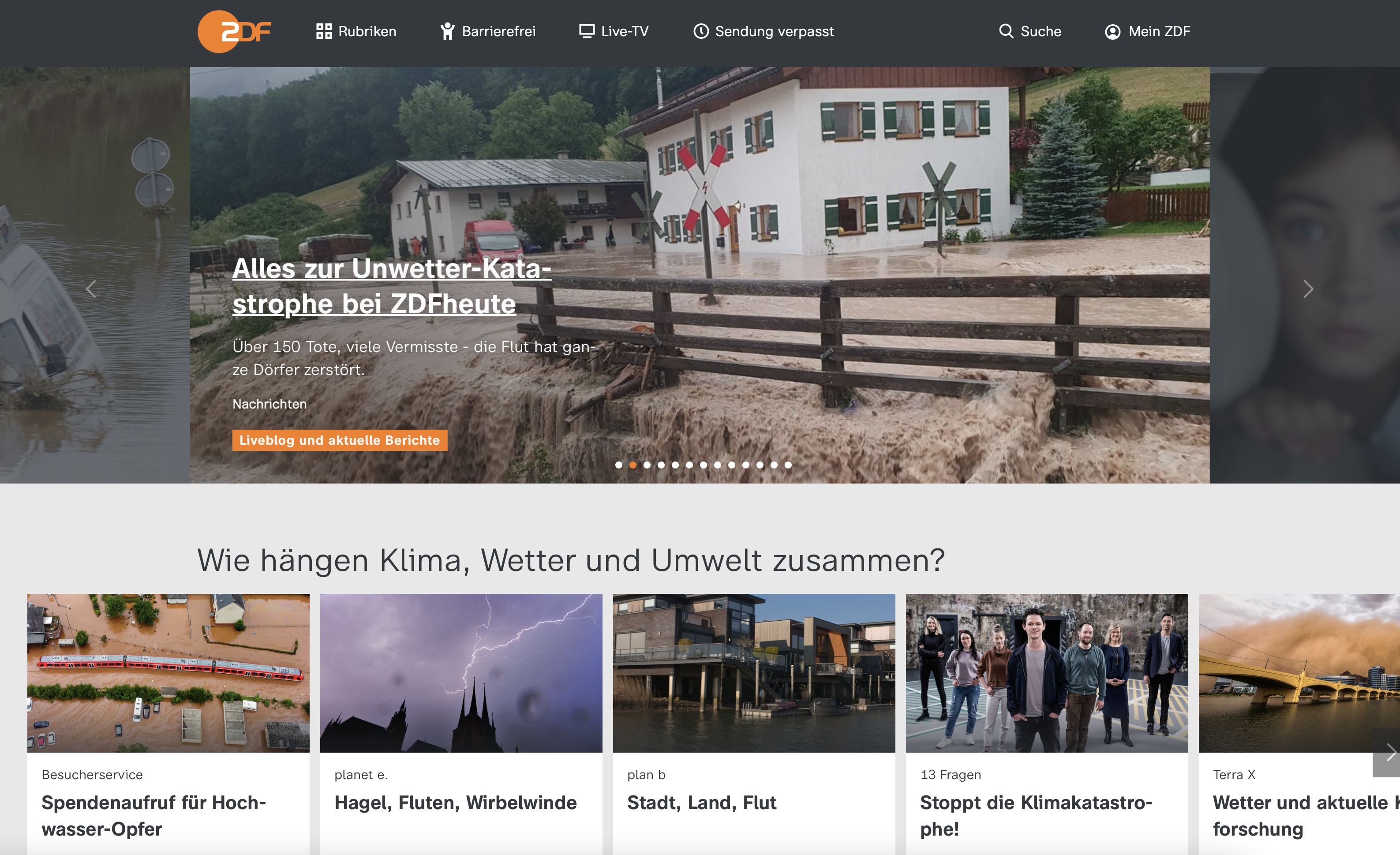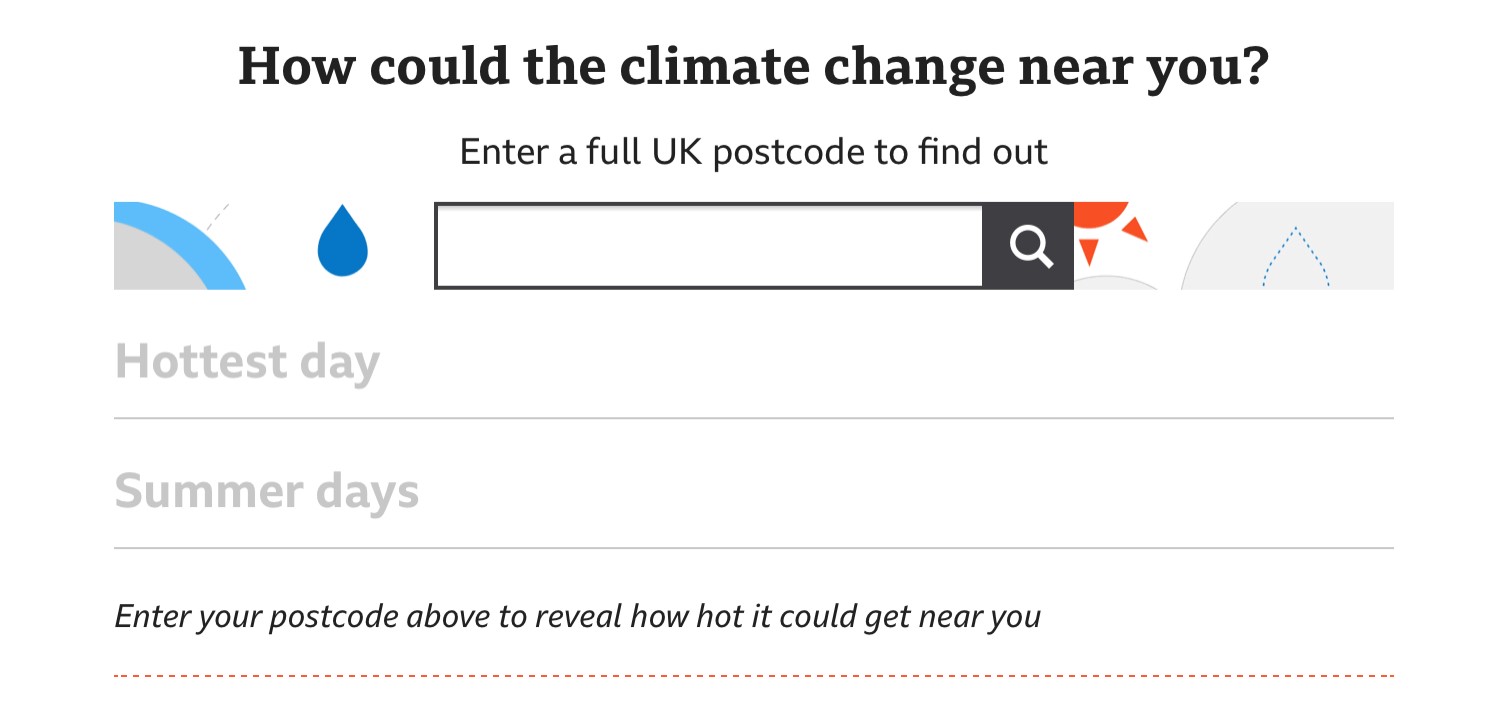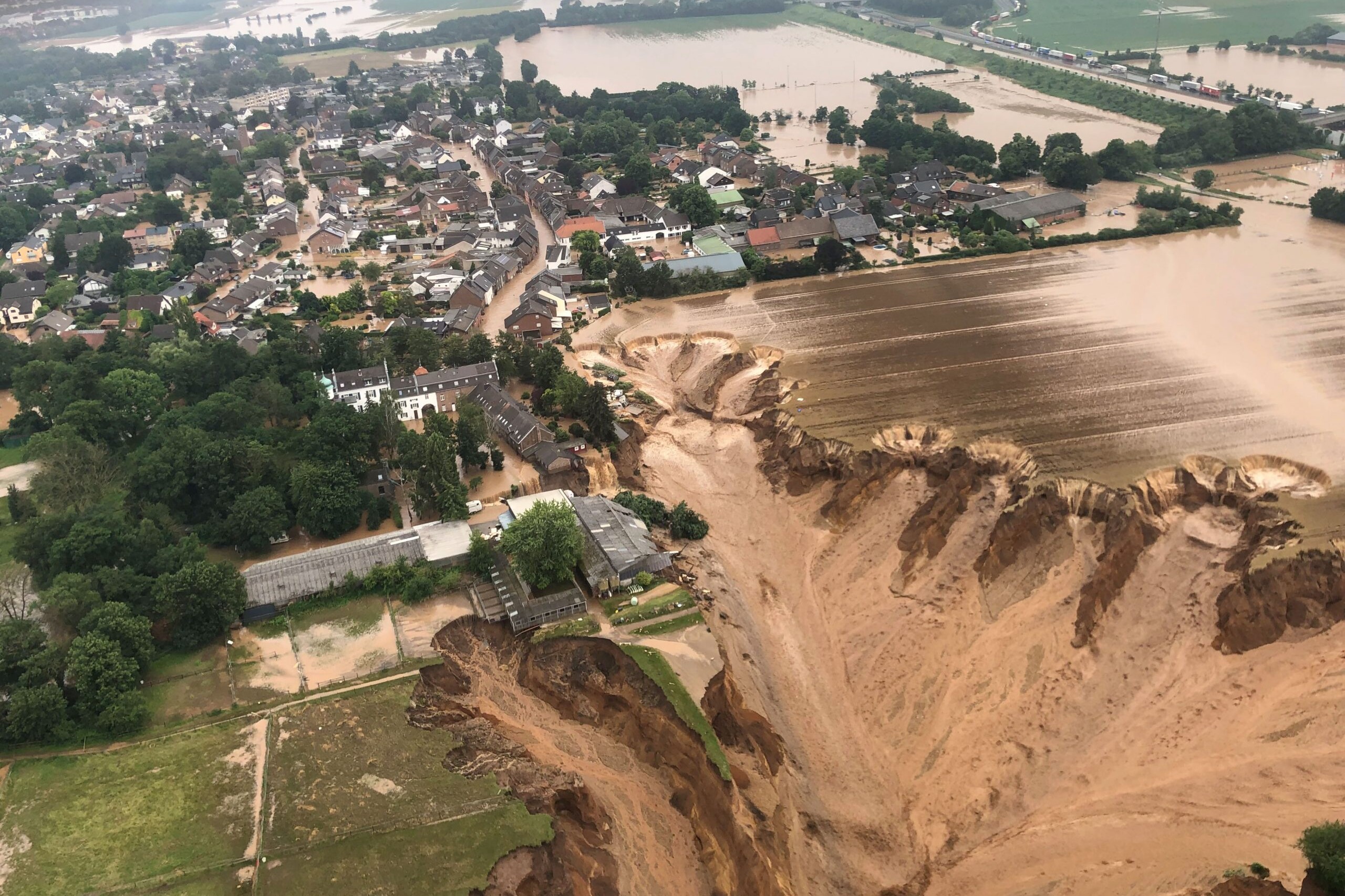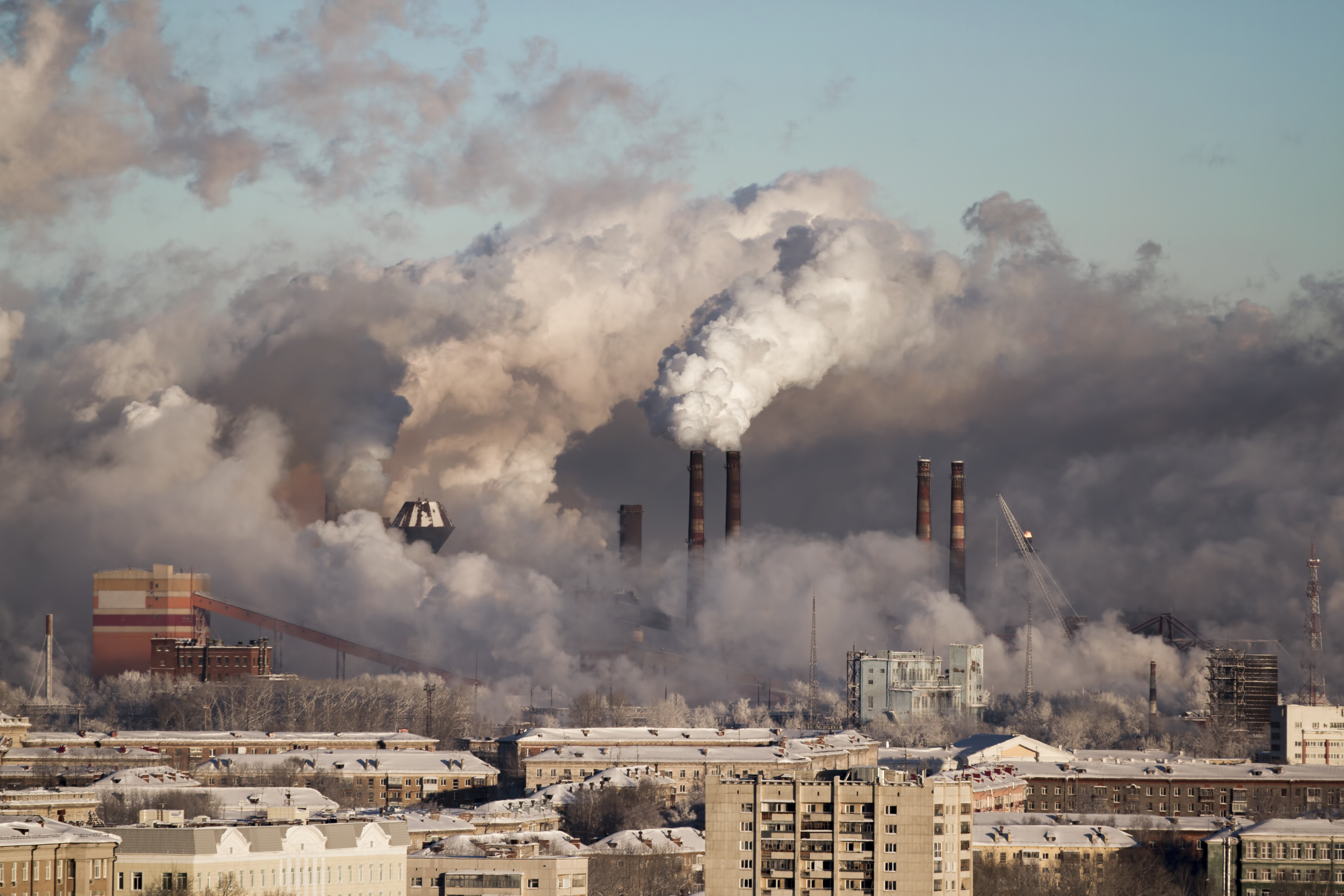"Climate Change is the defining issue of our time and we are at a defining moment."
United Nations
Public media must use their reach, scale and values to lead in covering the ‘defining issue of our time.’
By Chloe Howcroft and Thomas Chakrabarti
Global surface temperatures and sea levels are projected to rise to critical heights causing ‘irreversible’ changes to our ecosystems and the way we live by the end of the century if greenhouse gas emissions are not significantly and promptly reduced. This is according to a new report by the Intergovernmental Panel on Climate Change (IPCC), published on 9 August 2021. In their starkest warning to date, the panel clarify that ‘human influence’ has contributed to the majority of these changes. In the shorter term, the impact will cause unprecedented extreme weather events to occur more frequently. The recent floods across Western Europe, catastrophic bushfires in Australia, and intense heatwaves in North America and parts of the Arctic, are just a handful of examples.
But while news media organisations are expected to factually and accurately report on this critical issue, and help increase public understanding of its implications, there are growing concerns that they are not reporting on climate change sufficiently or responsibly enough, despite the overwhelming body of scientific research and evidence. Serious messages are getting lost amongst a cacophony of content. How and where audiences access news about climate change is also concerning. The Reuters Institute 2020 Digital News Report found that while television was the most popular source for accessing news about climate change, young people and sceptics are also turning to alternative sources like social media – an alarming trend given how mis- and disinformation can spread easily on these platforms.
But while there are considerable concerns about how it is covered, it is undeniable that climate change is now a more prominent topic in social and political spheres. Many governments around the world have pledged to do more to try and tackle climate change. Implementing the Paris Agreement in 2016 was one major turning point. But how are public broadcasters playing their part in reporting climate change and holding these commitments to account?
Public service media (PSM) have a real opportunity to lead the way on climate change coverage, not least because of the values that underpin them compared with state, commercial or social media. As publicly funded and highly trusted organisations, public media have a duty to provide coverage of timely science and evidence and help make sense of the impacts of a changing climate in an accurate, impartial, and responsible way.
Many of the Public Media Alliance’s (PMA) members are based in areas that are already being hard-hit by the climate crisis. Several public broadcasters, such as the ABC, NHK World and ARTE, and French public media organisations, have launched surveys and projects revealing how climate change and environmental issues are of significant public concern. They show that effective and sufficient coverage of this issue is increasingly in the public interest, and public media have been responding to this need in various ways.
Increased climate change coverage

Since the 2016 Paris Agreement, many PSMs have increased climate change coverage across their platforms, including dedicated webpages. From research into European media , the European Journalism Observatory (EJO) found that recent extreme weather events in 2019 marked a turning point for some media outlets to reassess their approach to climate change coverage. Some appear to be taking on a more robust stand on the link between extreme weather events and climate change. Others are adopting a tone with a greater sense of urgency and reporting more critically about governments’ climate commitments and the human impact on the crisis.
In recent years, Italy’s public broadcaster, Rai, has given more priority to climate change issues nationally and internationally. According to its 2019 Reports and Financial Statements, news programmes Tg1 and Tg2 have shown special climate features and investigations. The public broadcaster live streamed from the record breaking floods in Venice in 2019 and aired an investigative programme about the crisis and its links to climate change. Reports by other public broadcasters, including the BBC and NPR, highlighted how the floods were a direct impact of climate change.
German public broadcaster ZDF regularly broadcasts programmes and hosts a number of public debates about climate change. During the recent flooding in Germany, Belgium and the Netherlands, ZDF placed climate change content prominently on its website, while also highlighting how the extreme weather event was linked to the impact of climate change. In an interview on ZDF about its coverage, TV Council member Ulrich Lilie, said that his intention was “to use the entire range of formats in order to make different target groups aware of the urgency, but also of the opportunities for overcoming this global human challenge.” This is particularly important for reaching younger audiences on digital formats. Lilie added that, in an age of fake news, ZDF could lead the way in the climate debate with “scientific and critically researched fact[s]…”
Amid Australia’s bushfires in late 2019 and early 2020, content produced by SBS’ current affairs programme, The Feed, demonstrates how the public broadcaster has adopted language like ‘Climate emergency’ and ‘crisis’, as well as providing a more critical tone on the government’s apparent reluctance to debate and engage with climate change. Some of SBS’ more recent bushfire reports highlight the growing impacts of climate change; one report questioned whether climate change is ‘the crisis we forgot about’ during the COVID-19 pandemic.
Meanwhile, the Swiss public broadcaster’s international website, SWI swissinfo.ch, has published a critical article about the country’s ‘insufficient’ climate neutrality commitment.
Collaborations
As public broadcasters expand their climate change coverage, their content has been increasingly innovative, immersive, and collaborative. But in an age of growing competition and more precarious funding, such coverage can be costly. As a result, collaborations have allowed public media to pool resources with likeminded organisations to better cover the complex global issue.
With core values that include promoting ‘safety and security’ and providing ‘accurate, fair and impartial’ information, Japan’s public broadcaster, NHK, specialises in crisis and emergency reporting. NHK also claims to widely report on environmental issues in Japan and worldwide. Since joining the UN Sustainable Development Goal (SDG) Media Compact in January 2021, its SDG campaigns have included a myriad of visual content and projects to raise awareness of climate change issues. Last year, NHK World partnered with South California Public Media to launch a series of videos about climate change, which they refer to as our ‘common crisis’. Across six videos, ‘Zeroing In: Carbon Neutral 2050’ documents how the grassroots actions of people ‘from all walks of life’ in the US – from young people to farmers – are helping to create a more sustainable, greener future.
Read more: NHK’s emergency reporting
Last month, the BBC launched a new interactive resource showcasing the Meteorological Office’s projections of how climate change might affect their local area. Working in collaboration with scientists from the national weather service, the BBC’s ‘What will climate change look like near me?’ webpage offers users the opportunity to enter their postcode to receive a brief, personalised and animated projection of average future rainfall and temperature levels in their local area, in the case of a global temperature rise of two or four degrees Celsius.
More public media organisations have now signed up to Covering Climate Now (CCN), an initiative launched by Colombia Journalism Review and The Nation in 2019 to help advise newsrooms and share best practices on covering ‘urgent’ climate stories. Of more than 450 partners, Rai was the first public media organisation to sign up, followed by the Ghana Broadcasting Corporation (GBC), NHK, Channel 4, Radio New Zealand (RNZ), and various PBS and NPR member stations in the US. Partner stories are showcased in the project story archive.
Suzanne Levy, Senior Editor of Los Angeles’ largest public radio station, KPCC, told PMA that, since signing up to CCN, “it made us realise that we needed to move climate from the back burner to the front burner… we were already covering the issue, but we began to realise that the audience really wanted help in finding accurate information, and then understanding it.”
When asked about the importance of public media collaborating with likeminded organisations to better cover the crisis, Levy said, “Climate change is felt locally, but also globally. We need to hear from other outlets who are dedicated to serving the public about what their regions are seeing and doing. It provides confirmation that others are experiencing the same things, but also helps us to see solutions that may help us.”
“Climate change is felt locally, but also globally. We need to hear from other outlets who are dedicated to serving the public about what their regions are seeing and doing. It provides confirmation that others are experiencing the same things, but also helps us to see solutions that may help us.” – Suzanne Levy, Senior Editor, KPCC
Editorial staff and training
Some public broadcasters already claim to specialise in climate, environmental or science coverage, with dedicated editorial teams and reporters.
ABC’s recent plans include a greater focus on ‘editorial standards in relation to reporting on key current affairs subjects such as hate speech and climate science’ and to develop ‘specialist reporting that supports public literacy across topics’ including weather and science. This was explored in more detail in ABC’s Content Plan 2020-22, where it highlighted that ‘Climate and weather’ was a key theme for 2020. Two primetime shows, ‘Fight for Planet A: The Climate Challenge’ and ‘Big Weather (and how to survive it)’ have been produced as part of these commitments. In a statement published last year, the public broadcaster also mentioned that ‘staff have taken part in workshops about climate change with leading experts from the CSIRO and the Bureau of Meteorology to ensure our reporting is as up-to-date and informed as possible.’
In 2018, the BBC rolled out a training course, ‘Reporting Climate Change’, which is designed to give ‘journalists working in TV, online and radio a greater understanding of the causes and impacts of climate change and an opportunity to discuss how the issue can be covered.’ In its Annual Report 2018-19, it revealed that more than 500 journalists had received this training, while BBC Content teams had received ‘similar training.’ The BBC has also recently launched an opportunity to engage with young people ‘to help tell climate change stories.’
Smaller public broadcasters are also taking steps. KPCC revealed to PMA that the station is in the process of hiring a dedicated climate emergency reporter and is “discussing setting up a climate desk.”
But these innovations come with risks, particularly in terms of the costs of maintaining climate change coverage and specialised reporters. As Jon Williams, Managing Director of RTÉ News, revealed in a recent blog post, the Irish public broadcaster has operated without a dedicated reporter covering climate change for nearly eighteen months. ‘Pre-pandemic’, the organisation had only once science and environmental correspondent due to ‘financial challenges’. From the start of the pandemic, its single ‘science correspondent has been exclusively assigned to covering the Covid crisis.’
But RTÉ has bold plans to enhance its climate change coverage and training. Williams explained that: ‘Public service journalism means RTÉ News has a responsibility to lead the conversation about the climate crisis, and the impact it is having. From September, every journalist in RTÉ News will take part in a workshop looking at climate science, and the reporting of it.’ He also revealed that a team would be created to report the climate crisis ‘beginning with extensive coverage of COP26, the United Nations Climate Change conference in Glasgow in November.’
"Public service journalism means RTÉ News has a responsibility to lead the conversation about the climate crisis, and the impact it is having."
Jon Williams, Managing Director, RTÉ News
Challenges and criticisms
Despite significant gains in recent years, there have also been some shortcomings in the quality and editorial approach to public media’s climate change coverage.
Some public broadcasters admit that they do not always get climate change coverage ‘right’. RTÉ’s Jon Williams admitted to wrongfully omitting the connection between recent extreme weather events and climate change. Another notable moment was in 2018 when the BBC’s Director of News and Current Affairs, Fran Unsworth, sent a briefing note to staff to warn them of ‘false balance’. It said that “Climate change has been a difficult subject for the BBC, and we get coverage of it wrong too often.” Following growing criticism and a ruling from UK media regulator, Ofcom, which confirmed that the BBC had breached broadcasting standards in an interview with a climate change denier in 2017, the BBC has made significant changes to its editorial approach, and now adheres to revised – and more robust – guidance on covering climate change.
But even where there have been significant gains or changes to editorial approaches, these are often not reflected in annual reports or editorial guidelines and policies. In fact, some of the clearest explanations of editorial approaches and decisions regarding climate change are in response to criticism from the public. For instance, like many PSMs, ABC and CBC/Radio-Canada specifically mention their core values – such as accuracy, balance or ‘false balance’, impartiality and objectivity – in their publicly available annual reports, editorial guidelines, standards, or policies, which are no doubt relevant to their climate change coverage. But while ABC’s response to a critique about its climate change coverage explains its position on ‘false balance’ against ‘human-related climate change’ evidence, and CBC/Radio-Canada’s Ombudsman details a similar firm stance and defence of its climate change coverage when questioned, neither organisation appear to have separate or specific editorial policies for climate change coverage, nor mention their coverage in great detail in their annual reports or editorial guidelines.
We were wrong not to make clear connection between recent extreme weather events & climate change. Sin of omission & reported in good faith. But truth matters. So when we get it wrong, we should say so. Lesson learned. Work to do. https://t.co/EEcMi1VEy1
— Jon Williams (@WilliamsJon) July 26, 2021
There are also concerns regarding political interference for some public broadcasters. Threats to impartiality and influence on senior management may take its toll on the ‘quality and integrity’ of climate change coverage, at least in the UK broadcasting context, as Bob Ward, Policy and Communications Director for the Centre for Climate Change Economics and Policy argued. In an LSE blog, Ward raised concerns about the UK government possibly appointing Charles Moore as chair of the BBC and Paul Dacre as chair of Ofcom. Moore and Dacre not only have links to the ruling Conservative Party but also ‘have a track record of promoting unscientific climate change denial.’ While the government ultimately appointed Richard Sharp as the BBC Chair in January, and the process for appointing a new chair of Ofcom has re-started, Ward previously warned that ‘there would be a great risk that the public interest will be undermined and that audiences will be targeted with a constant stream of propaganda about climate change instead of fact-checked information.’
Wider economics and politics also matter. EJO’s 2020 survey also found an East-West divide in European media’s climate change coverage. PSMs that were more reluctant to cover climate change tended to be based in eastern European countries that rely more heavily on fossil fuels, such as Poland. They were also fearful of being associated with ‘campaigning’ or ‘activist’ journalism.
“Public media is dedicated to serving the public first, above profit...."
Suzanne Levy, Senior Editor, KPCC
Looking to COP26 and beyond
The conclusions of the IPCC’s latest report have been described as “code red for humanity” by the UN. Meanwhile COP26 is being billed as a make-or-break conference as record-breaking wildfires sweep across parts of Southern Europe, Siberia, and California. In such urgent times, it is clear that trusted and reliable public media have an instrumental role to play in reporting these complex, devastating and interrelated climate change stories.
Many public media organisations are rapidly building on existing disciplines – whether it’s political, science, data or migration reporting – to enhance their coverage. But the ability of public media to produce high-quality, innovative, and regular content about climate change, and to regularly train and maintain specialist reporters, will greatly depend on viability and access to sustainable sources of funding. It will also rely on PSM ensuring greater transparency regarding their editorial approaches to, and policies on, covering climate change.
While climate change is arguably the greatest threat facing humanity, the topic remains loaded for many news media organisations. But when it works, it works. The Public Media Alliance regards the effective coverage of climate change as critically important to PSM and their role in informing and educating the public. It is imperative that public media use their reach and scale to make sense of climate change and raise public understanding of its many impacts. The values and public funding that underpin PSM should also help to ensure that they stand out and play a central role in reporting the crisis.
As Suzanne Levy of KPCC also told PMA: “Public media is dedicated to serving the public first, above profit. It means we are free of a need to chase ratings, so we can spend time covering things which are important, though not ratings-toppers. We can also be of service to the public, helping them understand the often overwhelming amount of information that is available on the subject. By drawing on our values of accuracy, honesty and fairness, we can combat pervasive mis-information and show our audiences just how important these issues are now – and the speed at which we must change to avoid disaster.”
Listen to KPCC’s AirTalk podcast, which breaks down the latest climate assessment report compiled by the United Nations. 9 August 2021.
Explore our resource: Climate change & disasters reporting tools


